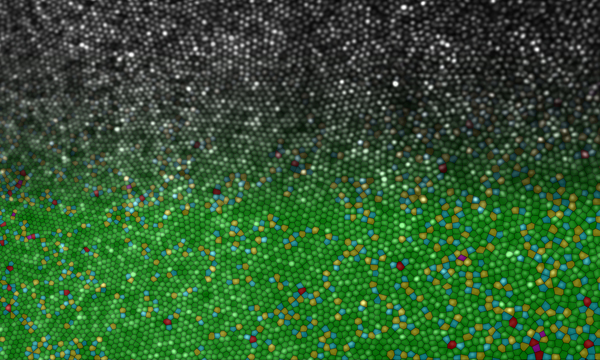Seeking Undergraduate Researcher
Project Overview
Dr. Cooper and the OCVL seek an undergraduate researcher to assist in a new study aiming to test a new fully non-invasive functional imaging technique developed in his lab. The project will use an animal model and validate it against “gold standard” measurements of function using mechanically and drug-induced retinal degenerations.
The OCVL will achieve these goals by using a fancy in-vivo microscope called an adaptive optics scanning laser ophthalmoscope and the northern tree shrew animal model (Tupaia belangeri). This research will require researchers to engineer unique solutions to repeatably aligning a half-pound animal to a 2-ton microscope, while also writing software to analyze the images obtained from the device.
About the Position
Student researchers will learn numerous things, including how to work with and take pictures of individual cells in living tree shrews, how to develop signal/image processing algorithms and control software, and how to write analysis software that holds up to scientific scrutiny.
All students will be paid $20/hr, and have the opportunity to present their work at an international-scale conference in Salt Lake City in 2025. Sophomores, Juniors, or Seniors, please email robert.cooper@marquette.edu if interested.
About Photoreceptors
As the first step in vision, photoreceptors have the essential role of turning light into a signal that’s interpretable by our brain. Therefore, any dysfunction of photoreceptors through injury or disease is devastating to an individual’s vision. For this reason, photoreceptors are the target of numerous clinical and preclinical therapies, all aimed at restoring their function. Unsurprisingly, clinical trials place enormous value on results that can quickly reveal positive (or negative) functional effects as quickly as possible. Despite an explosion of clinical treatments, we are still lacking in non-invasive functional assays for photoreceptors.
LEARN MORE ABOUT OCVL RESEARCH.


